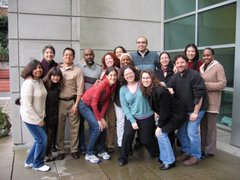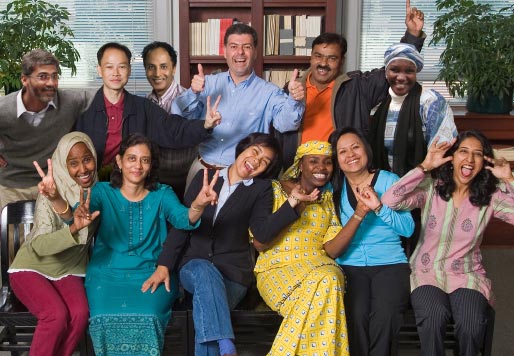A few days ago IHP sponsored a talk by Dr. Alice Rothchild, an obstetrician-gynecologist from Harvard University. Alice presented narratives about issues of health and human rights violations in Palestine and read from her recently published book "Broken Promises, Broken Dreams: Stories of Jewish and Palestinian Trauma and Resilience". Alice told stories of Palestinian pregnant women and the effect the Israeli occupation has on their daily lives, specifically the effects of restrictions on movement. A recent example of what Alice talked to us about is the shooting of a pregnant Palestinian woman, Maha, by Israeli soldiers, killing her 7-month-old unborn baby. Emergency teams were prevented from reaching Maha's home.

The Israeli attacks pose immediate danger to mothers and children in particular, which ranks high as the cause for indirect deaths in the area. Access of mothers to post-natal health care services is frequently blocked due to Israel‘s separation wall and the presence of hundreds of Israeli military checkpoints throughout the West Bank. A recent study on perinatal and in
infant mortality published by John Hopkins University found that four out of every 1,000 Palestinian children born die before age one due to Israel‘s restrictions on movement on Palestinians in the West Bank and Gaza.
Alice wrote in a concluding chapter in her book "I wonder whether the ongoing occupation, dense matrix of bypass roads and checkpoints, and the growth of Jewish settlements have actually made a viable two state solution a physical impossibility. I wonder how two peoples with such a history of trauma and loss can heal their many wounds, and what is the responsibility of the Diaspora communities." In a recent conversation with Dr. Barghouthi, Palestinian Minister of Information and President of the Palestinian Medical Relief Society stated that Israel‘s continuous breaches of international law undermined the potential for peace. I believe that medicine is not separate from politics and a people's right to health in Palestine can only be achieved when there is peace in the region and when we see an end to the occupation.
So, "what is the responsibility of the Diaspora communities" and the international community? What can we do from here?

The Israeli attacks pose immediate danger to mothers and children in particular, which ranks high as the cause for indirect deaths in the area. Access of mothers to post-natal health care services is frequently blocked due to Israel‘s separation wall and the presence of hundreds of Israeli military checkpoints throughout the West Bank. A recent study on perinatal and in
infant mortality published by John Hopkins University found that four out of every 1,000 Palestinian children born die before age one due to Israel‘s restrictions on movement on Palestinians in the West Bank and Gaza.
Alice wrote in a concluding chapter in her book "I wonder whether the ongoing occupation, dense matrix of bypass roads and checkpoints, and the growth of Jewish settlements have actually made a viable two state solution a physical impossibility. I wonder how two peoples with such a history of trauma and loss can heal their many wounds, and what is the responsibility of the Diaspora communities." In a recent conversation with Dr. Barghouthi, Palestinian Minister of Information and President of the Palestinian Medical Relief Society stated that Israel‘s continuous breaches of international law undermined the potential for peace. I believe that medicine is not separate from politics and a people's right to health in Palestine can only be achieved when there is peace in the region and when we see an end to the occupation.
So, "what is the responsibility of the Diaspora communities" and the international community? What can we do from here?




4 comments:
I think the greatest responsibility is educating others. I have not seen much power in my vote in the American political game, so I believe that educating others in the field of health and human rights, and science is crucial. This country has great power in its professional communities, and they are an untapped resource. The only other solution is for people in diaspora who have U.S. citizenship to return and provide skills, services, and financial support at least for short periods of time. I hope to go for the first time soon.
Hello. And Bye.
any changes coming ?
tempted deborah gujarat universally nyse usaid upon spooner palestinians stadtpark distant
lolikneri havaqatsu
Post a Comment